Prison-B*tch Negotiating: The Trump and Zelensky Blowout
by Borderland Nathan
You can learn most of what you need to know about human behavior in the real world from jail. The current fiasco with Ukraine peace negotiations is no different. You and I probably all watched the fight in the Oval Office the same way I did, with eyes wide staring at my phone. I have a few thoughts.
Tone
Trump dealt with the mob in the construction business as he was coming up. As I understand it, Vance wasn’t handed a silver spoon in his past. Zelensky is part of an eastern culture. The common denominator with all these sub-groups is that in a conversation, tone matters. What you say is not as important as how you say it. This is something anthropologists talk about a lot, but if you grew up either a certain way, or in a certain culture, or dealing with certain people, you’ve dealt with it as well.
High vs Low, Loose vs Tight
High context societies are societies where communication is implicit. Not everything is stated out loud, conversations can be indirect to save face, there is often a shared culture, and people rely on indirect social cues to behave properly. Examples include Japan, Mexico, and for that matter most Middle Eastern and eastern countries. Low Context Societies are places that communicate very directly, and explicitly state the relevant information in their language. Examples include Germany, Scandinavian countries, and the U.S.
Tight cultures are cultures that have strong social norms and low tolerance for deviating from the norm, such as Saudi Arabia. Loose cultures have more leeway in social behavior, and examples include Brazil, the U.S., or the Netherlands. These concepts are often fractal, and you can see tight culture in middle to upper class behavior, and loose culture in the hood. You can see this even in simple things like how people act when they come to a crosswalk where the light takes too long to turn into the walk symbol. A tight culture framework would dictate to stand as long as the light takes. A loose culture framework would dictate to go as soon as it seems reasonable to cross, with reasonableness being a personal choice of the walker.
As a general rule of thumb, high context cultures are tight, and low context cultures are loose. I experienced this a lot growing up around Mexicans as a white guy in the barrio. I would completely misinterpret things that were happening around me because I had a different cultural influence. I would take words or actions as nice or friendly when in fact they were dripping with threat. When that happens, the neighborhood is watching, and you have to do something about it or you get it from everywhere.
From what I could tell in the video footage, Zelensky tried to punk Vance and so Vance got loud. Trump instantly caught what happened, backed up his VP, and everyone whipped their dicks out.
Hard to watch? Sure. But Trump is a tone guy. Everyone there was a tone guy. Not everyone watching it will be a tone guy, and so they see or don’t see the presence or absence of respect in ways that are very different from the people actually having the argument.

The Ukrainian ambassador Oksana Markarova tearing up at the exact point Zelensky made implied, high context threats about “having an ocean.” She knew exactly what was happening.
Vance was disrespected subtly by Zelensky, and responded loudly in kind. He responded the way high context politicians do: With direct verbal shaming. That’s the ugly game being played out, that people are making low context gestures of disrespect, but have to be responded to in a high context manner, because diplomacy is largely high context for the sake of other people viewing. This means that jabs can take place under the table, and daggers from around smiles.
But the neighborhood is watching. That means all those high-context Muslim countries we are perpetually at war with, as well as China, and the list goes on. Small slights need to be addressed directly, because it affects what they do.
The bottom line is, are the decision-making goals being achieved? If yes, then that is all that matters. The problem is that at the time of this writing, Zelensky didn’t achieve his goals. Zelensky felt shame and I understand it completely, but being rational as a leader is looking at the fact that you lost, and you need to accomplish hard goals for your country. Trump’s rant was understandable but in general it was hard to watch because I don’t always agree with his tone or style. But he was correct on one statement: Zelensky didn’t have the cards.
Now Zelensky did seem to slightly misunderstand the statement, and this is another reason why interpreters are so important. They soften the blow and the mishmash of tone vs content as each tries to reach the decision point. But overall, Trump was correct. Zelensky held no cards. I’ll explain why.
System Constraints
When making decisions, you have to consider the factors involved and then define the outer limits, or system constraints of the system. This is because you have a set tree of options you can work with. In the worst case you can shake up the chessboard and see if an entirely new set of options will work, but ultimately you can only go as far as the constraints. Life is like this. Death is the constraint, and so we can pick decision trees, or even wait for new ones, but only until we die. We’ve all seen how sad it is when people don’t properly orient their lives and live as though they will never die.
Zelensky says he wants to end the war now, but he wants reassurances. The problem is, he is making decisions in such a way that he seems to have done one of two things: Either he is intelligent and misjudged the nature of the system constraints, or he is idealistic and too dumb for foreign policy decisions.
In the first option, he failed in the basic assessment of Russia vs Ukraine. Russia is a much larger constraint with vastly more resources. That means you lose. The best option in asymmetric bargaining in this case is to negotiate resources and avoid war.1)“Wars are usually Pareto inferior outcomes of a conflict in that both parties would be better off if the expected loser compensated the expected victor by means of a transfer of resources without actually going to war,” D. L. Brito and M. D. Intriligator, “Conflict, War, and Redistribution,” American Political Science Review 79, no. 4 (1985): 945, https://doi.org/10.2307/1956242. A potential option is to try to defend yourself, but if the aggressor shows a persistent threat, you need to make the determination as quickly as possible and instantly cut losses toward the system constraint: You are going to lose. Every ounce of struggle past that is pointless. Zelensky was given assurances under the Biden administration, as well as by the UN, but he ignored the hard constraint of military force and looked at the soft constraint of persuasion. He overestimated how much people would actually support him with force, vs say they would support him. Words and actions are very different, and when you have words plus a lot of money rolling in, you can lose perspective.
With this in mind, watching the fight in the Oval Office was like watching a midget fight Mike Tyson, and then getting mad at the referee for stopping him in the second round. Don’t get angry. Accept the deal. Otherwise the referee can walk away and Mike can do Mike stuff.
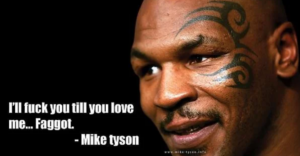
If you look at the hard constraints of Ukraine vs Russia, Ukraine never could have won. The only option would have been to use lots of money and use their own men, then have other men from other countries fight for Ukraine, from within Ukraine, as a proxy war. At worst it would turn into a world war that wouldn’t really be a war because the U.S. is the meat of it. Zelensky, in the end, would be watching other countries carve up Ukraine anyway, without any of his input, because there wouldn’t be any Ukrainian men left to debate the issue.
At best, knowing these system constraints, Zelensky had a very short time period with initial Ukrainian victories to try to shake the chessboard and hope that a different outcome would present itself. But this requires prudence, as you balance the shaking of the chessboard with the number of lives you are losing. At a certain point, you have lost so many lives shaking the chessboard for a new option that you are moving closer to the end constraint you are trying to avoid anyway: losing the war.
Zelensky also massively overestimates how much the UN can protect him. The United States is the muscle of the UN. Being a part of the UN will not save Zelensky. State actors such as Russia and China don’t care about what they do, and they don’t care about sanctions because the UN doesn’t provide them with enough to influence them. The key part of being clear eyed about any situation is accurately looking at what the real system constraints are, and that often is as simple as looking at where the money comes from. Military force is key, and the U.S. is the big dog, like it or not. The other big dogs are the UN and Russia. The U.S. is the outer system constraint. The UN comes last, and that’s even if they all band together, which in itself is a large assumption.
Now that we know that the U.S. is the system constraint, all decisions needs to be made in light of that. Period.
I do understand Zelensky’s frustration to a point. Although the situation is much more complicated than the media shows, on a surface level it’s a bit like an old lady having her house burn down. Her neighbor is coming over and robbing her, and a stronger neighbor comes by and says “I’ll help you if you give me half your furniture.” It seems unfair, and perhaps it is, except for a couple key points. The first is, Zelensky isn’t losing furniture, he is losing Ukrainians. The second is, the second neighbor isn’t really a neighbor. To extend the analogy, the second neighbor has to have a good reason to help this old lady when there are 50 other houses burning down on the block, including his own. Oh and also this old lady owes him a lot of money. Is this right? Or is it wrong? It’s a matter of resources. Ethics are difficult because they apply in time, and so they test our morals.
Zelensky has a duty. Once you know the system constraints, you have to look at the stakes, and Zelensky is losing his country. Life by life. It’s going to happen anyway. This is where good old prison logic comes into play.
Prison Logic
In prison you avoid both errors of idealism and stupidity by assuming one thing: If you’re not useful, someone will make you useful.
If I go to prison, every gang there wants to rape me, and I can’t protect myself, guess what? I’m going to go off the system constraints. 1. Power. 2. What’s best for me. As long as one gang is powerful enough to protect me, I’ll worry secondarily about whether or not I get a post-event appreciation wink.
Being a prison bitch is what weak, solitary men have done to survive. Zelensky doesn’t have the option of bringing honor into this; he’s in charge of millions of lives. So he has to follow prison bitch politics. Get tagged by everyone, or get tagged nicely by one. And the only way to do that is to make himself useful. His initial problem was shaking the chessboard and hoping that the UN prison guards would keep him safe. Likewise, his problem at the meeting is that he already refused the first option of giving 50% of the mineral resources to the U.S., and the next offer is likely to be worse than the first.
It will only get worse, and he is running out of time. So he has to pick the biggest prisoner that is also giving him the best possible deal, and he needs to go for it instantly. Nobody does anything for free in prison or in foreign policy. Assurances from the UN or from the U.S. for that matter have to be in our interests. If Zelensky wants the best possible outcome, he should not just be trying to avoid losing his resources, he should work with Trump to go into business. Once we are in business, we have incentives to stay in business even if the president changes to a new administration. By making himself useful, Zelensky ensures that direct military action by the big dog will protect his people, and it could also forge new possibilities for Ukraine.
But you have to relax into it, buddy.
References
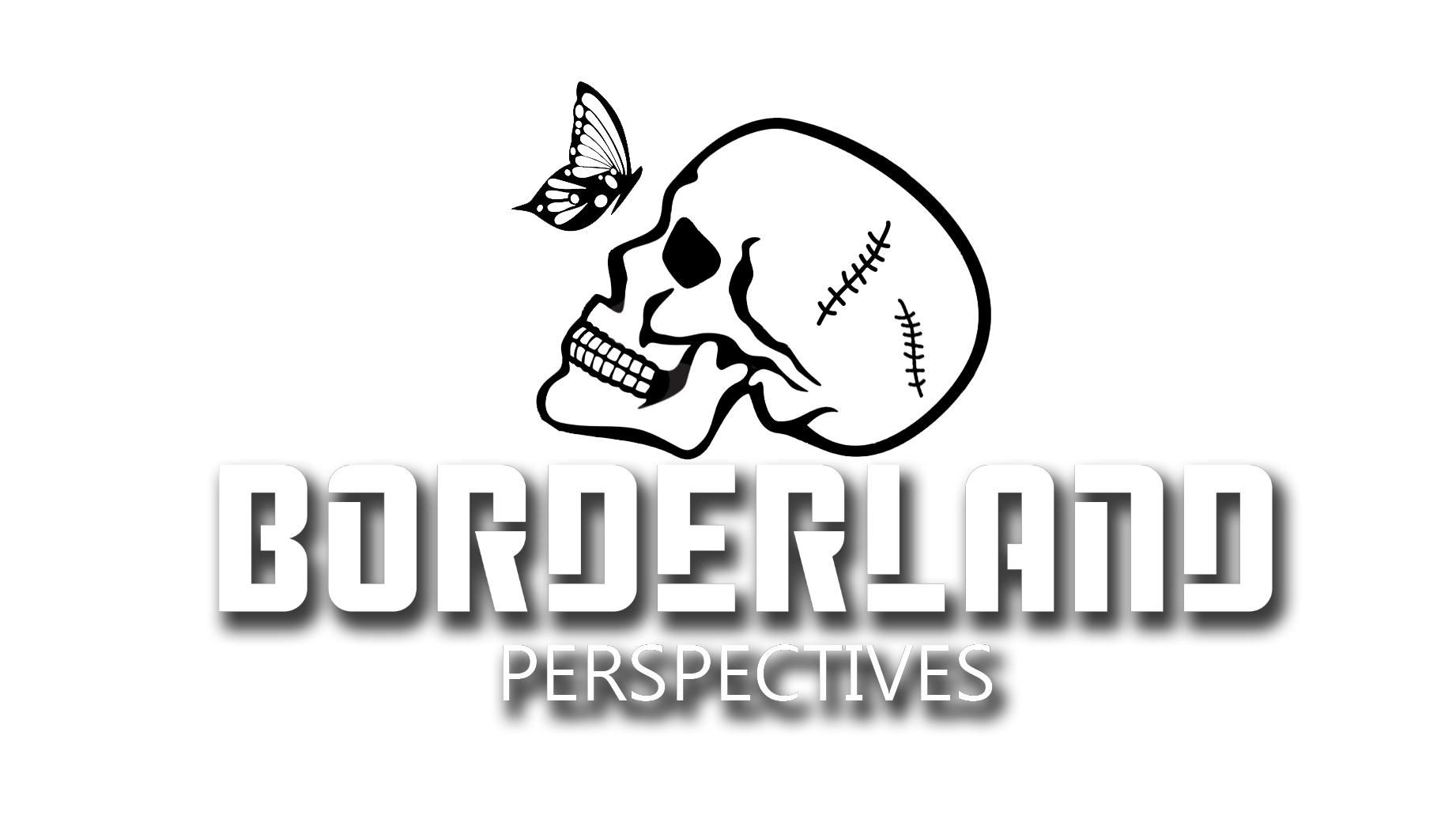
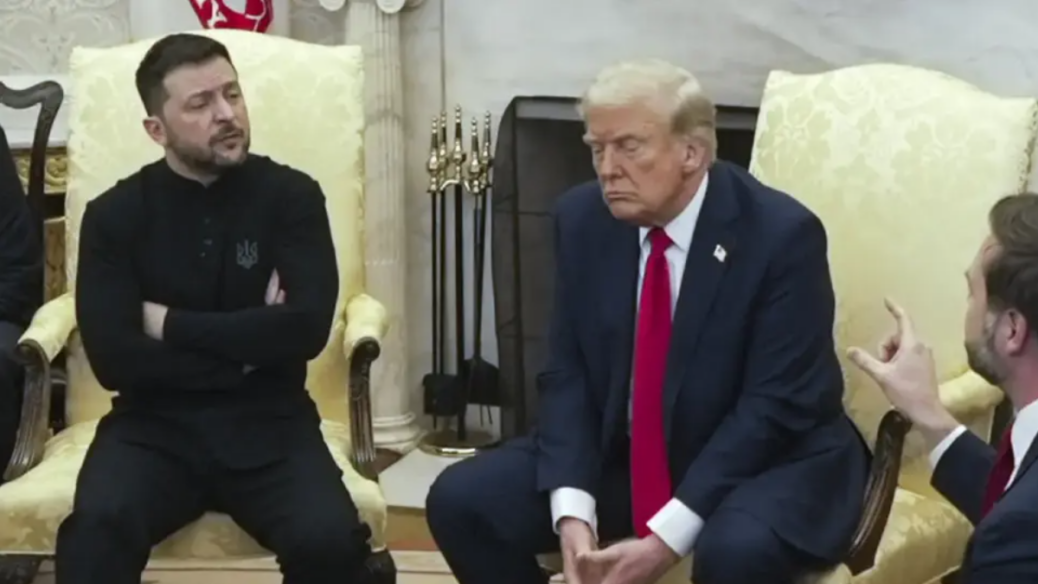
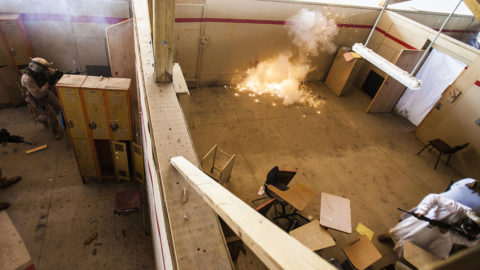
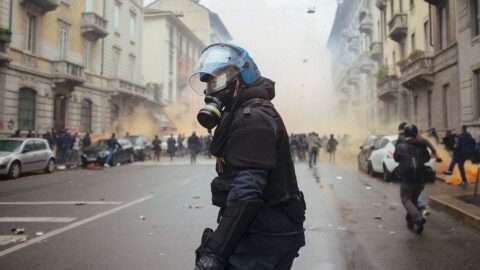






 Rob Brotzman
Rob Brotzman  Nathan Wagar
Nathan Wagar